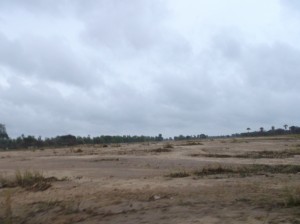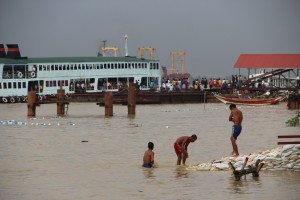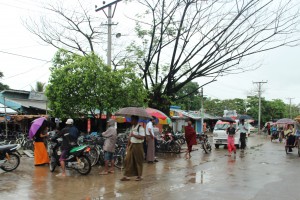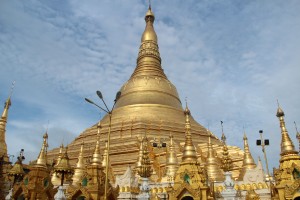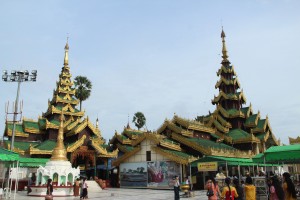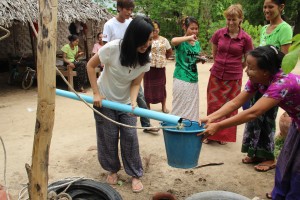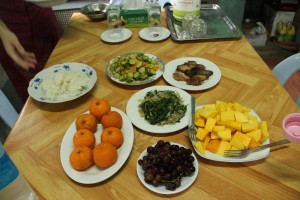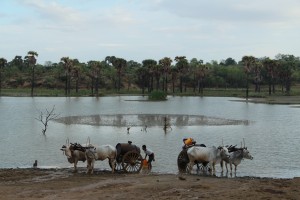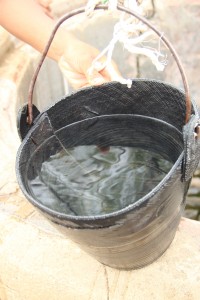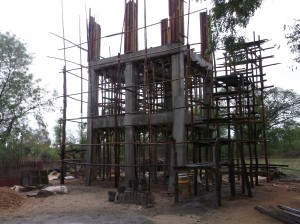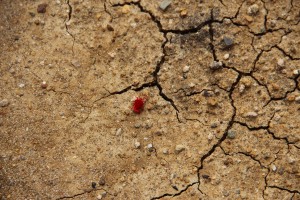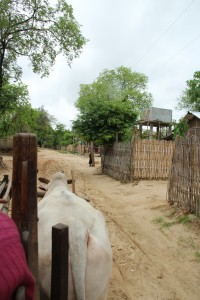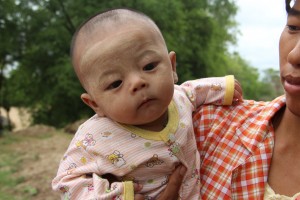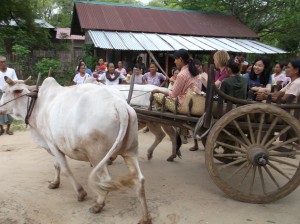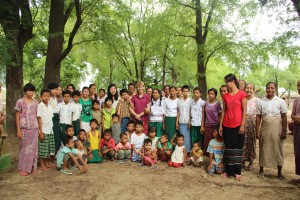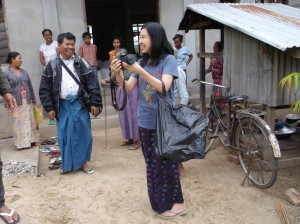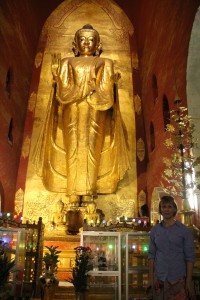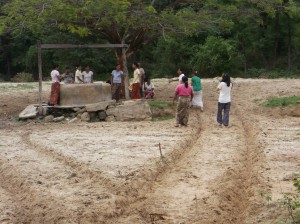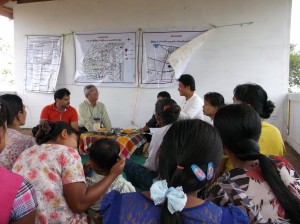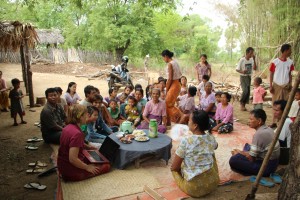Archive for category Burma
After Myanmar
Posted by janine joyce in Burma, Janine Joyce on July 15, 2014
Since the return there have been three presentations sharing the stories of brothers and sisters in Myanmar.
People are shocked by how hard it has been for the people. It is difficult to truly convey the magnitude of water conflict. It is even harder to convey the way our actions here affect everyone else. The one world perspective.
It is hard to convey the stories of hope and possibility in amongst such massive challenges.
People are caught up with their own problems of working and providing for their families . It is hard to explain that the level of poverty is such that even those struggling here are still rich in comparison.
Those from earthquake disaster torn Christchurch are overwhelmed as they come through their own stories of upheaval and survival. They can’t imagine what living through another disaster of such magnitude would be like. Actually its worse than that. They can imagine it and the pain overwhelms them.
In some ways the story is too powerful for people to feel that they can make a difference.
But we can, each choice we make has an effect.
I guess all we can do is make a start. Any start. And start again each day.
We can reduce the consumption and waste in our own lives. We learn to open our field of concern and ‘give a little’. We can pay attention to what the politicians are doing and vote well.
It is a collective responsibility and call for a change in the way that human beings live and the connect to each other and the planet.
I don’t think we have seen something so big.
We could make a difference if we were willing to focus our efforts differently. If we truly understood the effect of poverty on the planet and the way we wage war on each other directly and indirectly.
The ultimate violence of our practices of over consumption and waste. The way we have developed global systems that value hoarding and wealth creation.
What I learnt in Myanmar is that when people come together and are empowered to take governance from external actors then they can make a difference.
Communities can create changes. People together make change.
With vision and cooperation and some redistribution of money and resources it is possible.
It is a massive change in mind set and practices. Within myself I learnt that our survival as a species will depend on it.
The scope of this is beyond an academic conference. Talking and creating change makers is a practical process…. triggering guilt does not create change….I hope the conference platform for the peoples stories will have practical outlets…. in the givealittle.com kind of way.
I would like o thank Pushpa for her vision in sparking this pilot Peace builders program. I am grateful that I was chosen to participate.
Have I become a peace builder? The changes are still emerging.
My instinct is that we can all be peace builders wherever we find ourselves.
South Yangon
Posted by Namsai Wongsaeree in Burma, Namsai Wongsaeree on July 5, 2014
This past week I got a chance to visit two townships in South Yangon, Dala and Kawhmu. Dala is, from what I have been told by many individuals, the area in Yangon that suffers the worst water crisis. Drinking water is highly needed in those areas in the dry season.
The differences between downtown Yangon and the south, the other side of Yangon river, strike me when I first arrived there. While the city of Yangon is developing in an incredibly fast pace, permanent buildings are rare to be seen on the other side of the river. It seems almost like I was back in the dry zone again, with, of course, more green space and rain.
There are two ways to cross Yangon river; by ferries or by bridge. Taking ferries seems to be a more promising and faster way. It takes around 15 minutes to cross the river with only 1500 Kyat (around 1.5 USD) per car and 100 Kyat (around 10 cents) per person. Though, it took us quite a while to get there and come back since the transportation ferries only come every two hours.
It is a shame to see the amount of waste in Yangon river. Yet, children are still having fun swimming, and men are still showering and get cleaned (?). The water is clearly not suitable for drinking. The mixture of sea and fresh water here is only suitable for some domestic uses such as washing and bathing.
My first impression of Dala is that everything is lively and colorful. There are people with very colorful clothes and umbrellas walking and biking everywhere. There are some rain storage ponds full of lotus (to prevent water evaporation in the dry season), there are some areas with drainage problem, but so far there is never a flooding problem in this area.
Kawhmu, however, is quite different. It takes another hour on a bumpy and muddy road to get there. The road is very dangerous for locals, whose main vehicles are motorbikes. Fortunately, the road is being improved. There is an immediate plan, funded by JICA, to build the road after the rainy season starting in October. This will be a good livelihood improvement for the people living in these areas.
Insufficient drinking water in the dry season is the main problem in South Yangon. People would store as much rain water as possible in the rainy season, with containers, tanks, storage ponds, and they would use the water in the dry season. Tube well is not an option here because of underground water salinity problem. In certain years (which is mostly every year now), when the rain is late, people would suffer. Starting from April and May, right before the rainy season, is when water is running out. Many rely on donated water, many, working in Yangon city, have to carry water back home after work.
Donation is not enough and long-term solution is needed here in South Yangon.
Acknowledgement: I am grateful for the National Engineering and Planning Services (NEPS) for making this filed visit happened. This “private company but doing works like nearly non-profit style” focuses their works on water facilities planning services and have built storage ponds in South Yangon area. I am also grateful for JICA, all the donors, and the locals who took time sharing their stories with me.
Feeling blessed in Yangon
Posted by Namsai Wongsaeree in Burma, Namsai Wongsaeree on July 2, 2014
“We (I) will help you”
I have been told this sentence over and over again. Everywhere I found myself here in this beautiful city of Yangon, I got nothing but generous help. A kind of help that I would never have imagined of…
I have been working and receiving help from Burmese locals this past week. Sincere, caring, talented, trustworthy, and kind are the first adjectives that popped up in my mind when thinking of how to describe them. Surprisingly, this blog is, by far, taking me much longer than usual. I am not sure if I can do them justice in conveying how amazingly loving they all are.
Coming here not knowing anyone and having almost no proof of my identity, I had thought that building trust would be a difficult challenge. I can’t be more wrong. My premature assumption was clearly proved to be invalid.
A UNDP National Consultant trying to call and successfully connecting me with everyone he knows that works on water issues…
A retired pro-rector and an adviser on environment and education showing up in the guest house and taking me around to meet the people that he knows can help…
University professors agreeing to help with anything they can, from sharing their knowledge of the issue to directing me to the right people…
Senior engineers, consultants, and directors agreeing to take me along in the field, offering help with translation, and resisting my failed attempts to pay for my own breakfast, lunch, and snacks…and all agreeing that they now have a new “daughter”
A business owner coming to find me, offering her whole day (and potentially more days) taking me to meet with her friends who know of and experience water crisis, helping to find a translator for the VDO clips Janine and I had filmed in the dry zone…
A monk, a doctor, a reporter, and many individuals taking their time and patiently sharing me their stories and thoughts…
A local NGO calling and offering to come find me…
Meeting one person leads me to many more. Unexpected help is being offered.
Burma is an absolute definition of beauty. Beautiful country, beautiful culture’s’ (and I would like to stress my “s” here), and beautiful people.
I can’t be more thankful. I keep wondering what I have done to deserve all this.
“Are you Buddhist? In Buddhist, if you are good, the good thing will come to you”
Right. Now I will just have to live up to what has been given… Not easy.
Unforgettable Interview
Posted by Namsai Wongsaeree in Burma, Namsai Wongsaeree on June 28, 2014
Today I had an interview that I would never forget.
My day started off with an unfamiliar sound of phone ringing disrupting myself from writing following-up emails to different organizations and people I had been meeting with this week. It had been a long week and I was glad to have an expected phone call, which led to an unexpected interview. I just recently rented a sim card and glad that it has proved to be very useful. Sim cards in Myanmar are very expensive, it costs 48 USD just to rent one for 15 days, and that doesn’t include any top-up packages…
The person calling was a student and a good friend of my ex-supervisor. We have been introduced to each other through emails and I knew him as a Burmese activist working on water issues. He offered to meet with me anytime within two hours. My gut was telling me that this would lead to something really important, without further hesitation, I jumped into a cab rushing off to see him.
Turns out that the person I met was nothing but ordinary. A graduate from Cornell, a writer, a long-term political activist, a first leader of the All Burmese Student Democratic Front (a student-led revolutionary group fighting against the Burmese government in 1988), a chairman of an NGO, a political prisoner…the list can go on and on…
Mr. Htun was tough, kind, and open. The kind of person who had been through unimaginable life struggles, yet still find love in humanity. The kind of person who had seen the worst sides of human beings, yet still believe in human dignity. He slowly talked me through his past, telling me how it was to be a revolutionist, how it was to get a death sentence and had to resettle in the United States, how it was to be separated from a family for years, how it was to spend five years in prison…
“Like animals.” was the answer I got. “I will never want to go to the zoo again, animals in those cages…”
Being maltreated by his countrymen doesn’t stop Mr.Htun from loving his country and the people. His NGO, the Civil Society for Myanmar (CSM), will be ready to run in the coming August. Mr.Htun is hoping to distribute drinking water to those in need.
I truly wish him success.
“Do you feel safe enough in your country?” “Can I share your stories?” I asked after he lightly told me about being followed by the Burmese intelligence agency.
“I am US citizen now. I don’t care. I just want to help people.” he simply answered.
Courage is among so many other things I learn from him.
ps. Thank you Leslie, my ex-supervisor, for making this happened and thank you, Htun, for the inspiration. 🙂
Flowers and green
Posted by janine joyce in Burma, Janine Joyce on June 25, 2014
Back in Yangon for a few days now. Some dry in amongst the rain. The streets are familiar and I feel very relaxed here. I love the bright coloured umbrellas, and all the monks walking in their crimson robes. It is a very beautiful environment.
Yesterday we met with more NGO’s.
Each time we find them it is a source of triumph as sometimes the premises are tucked away and hard to find. Maybe we will add sleuthing to our CV’s??
Yangon is an urban story about water…So there are many more stories to gather… Our visa situation is tight and only gives us 28 days. I have found a very cheap ticket to Singapore and will make the most of the opportunity. I leave later tonight and will see if I can reapply for another visa. Hmmm- not sure if it is wise. I guess time will tell. I lose a few days in the field but fingers crossed that it is successful. Namsai is resting and gaining her strength after being sick for some weeks now.
Reflection of Dry Zone
Posted by Namsai Wongsaeree in Burma, Namsai Wongsaeree on June 25, 2014
Eight days in dry zone was probably one of the most challenging experiences in my life, but also the most meaningful ones. There was so much that I have observed, listened, and learned. I am thankful for the stories the people have been openly sharing with us.
Weather is, no doubt, one of the most important factors in human lives. Having the privileges to somewhat “control” the weather, either by air conditioners or heaters, makes me take the powerful effects of weather for granted. Being in the dry zone, where my body and brain could only barely function because of the heat and humidity, I finally realize ‘for real’ for the first time in my life how tremendously the weather affects us and how little (if not none at all) we can control the weather.
Climate change is a huge problem. The problem that none of us can overcome without serious combined efforts.
To sustainably tackle the problem of climate change and the lack of water, people of dry zone are trying. Dams are being built, ponds are being dug, and pipelines are being installed. Hundreds of trees are being planted, but unfortunately, not many will survive. Not enough water for consumption, not enough water for household usage, not enough water for irrigation also means not enough water for trees to grow. These people are seeing some of their efforts going to waste, yet they won’t stop trying, they won’t stop hoping…
The people are strong. They are very strong. Yet, it is still not enough.
I am now back in Yangon drained and unwell. I am getting some rest and recovering. Yet the people there are still trying…
There is much we can do together…
Posted by janine joyce in Burma, Janine Joyce on June 21, 2014

Ywar Tan Shae village water pond that has been dug deeper and expanded with overspill systems and water ways. Ready for the rain. Dry Zone Myanmar.
Climate Change, yes it is. Yet there is much that we can do to support the people who are at the knifes edge of this.
A well for a small number of households costs US $ 300. A massive reservoir pond US $7500. The people happy to give the back breaking labour in the brutal heat and what limited money they have for these projects. But they need partners. Because the scale of this is too big for one small community on its own.
The NGO’s are able to get the money to the people and the strategic skills and planning processes to manifest these big engineering projects. I have been really impressed by the bottom-up planning by the villagers alongside Action aid Myanmar. The village book is a comprehensive document that shows the needs, the resources and the vision for the community. When the money comes the projects seem to happen efficiently and quickly…
The people have lived 2oo to 400 years in the dry zone and they have the knowledge for facing this territory. They understand each other and know the values of cooperation and unity. Yet this territory has changed.
The rain system has changed, the trees are dying and the river beds are empty. The wells have to be dug deeper. When the rain comes it is too heavy for the land.
Like us all they want the best for their children and community. They want their children to go to school, they want to be able to take their people to the doctor and most of all they need water.
They are working to develop ways of storing the flood water when it comes.
They are managing water that has changed from sweet to salty.
They are changing their crops and numbers of animals according to the lack of water.
They are conserving water.
They are migrating to other countries to seek work.
They are filtering and boiling their water to try and not get sick.
They are separating the animal and human access from the water ponds.
They are replanting trees and but at a slower rate than the coconut and tutty trees are dying.
They are watching new plants that they have never seen before growing on their land.
The men, women and children are spending the 4 hours a day gathering water and waiting whilst everyone takes a turn at the well…before school…
They are brave as they recall the rivers and streams and forests of 43 years ago; and the acres of sand and empty water ways now. Some but not all will refill when the monsoon comes.
But it is late again… It is often late…
They are saving money and putting what little they have into community projects.
They know what they need. They need pipelines to bring the water to their homes. They know that electricity will help. They know that the roads will be useless after just a few days of rain once it comes. The much needed rain will bring more problems.
They give easily to each other without counting the cost or expecting in return. They need partner donors who can do the same. The engineers are amazing here. They achieve much on so little. Nothing is taken for granted and nothing is wasted.
Life in Dry Zone
Posted by Namsai Wongsaeree in Burma, Namsai Wongsaeree on June 19, 2014
It has been five days since we have been in the dry zone of Myanmar. As the name “dry zone” suggests, this area receives minimum amount of rainfall and access to water resources seem to be the biggest issue.
As soon as we arrived, despite the rainy season, I can see clearly that the land is dry and sandy. Tree leaves seems to be smaller in order to adapt to the weather. The weather itself is extremely hot even comparing to Yangon where we departed from.
I have been learning so much in the past few days. I have been so welcomed and well taken care of by everyone here. “You should just stay with us” and “You are welcome back anytime” have been told to us over and over from the villagers we visited. Every village we visit, there are always food and drink offered to us (some even packed snacks for us!). People waving fans trying to get rid of the flies for us, people trying to hold umbrellas for us…
I am very thankful. I have been very blessed and now I wonder what I can do for them.
Though their communities are very strong and they are pulling together all the resources they have got, people here really need help. They need help from external actors and the international community. We have been asked to share their stories, their difficulties dealing with the lack of water. Hours and miles per day they have to go carry the water, the poor quality of water they face, the time they could have used to do some other productive works, classes the children could have gone to, babies the mothers could have been looking after…the list seems to be endless.
Surprisingly, many of these stories are told with laughter. It is just wonderful to see how they support and understand each other. I truly believe that the world has a lot to learn from them.
It has been raining here in the dry zone.
“You bring good luck, you bring rain with you”
I really wish I could…
ps. photos to come when WiFi allows me…
A story of ‘we’
Posted by janine joyce in Burma, Janine Joyce on June 19, 2014
We have been welcomed by the dry zone.
We have listened and listened. The people have made sure that we have seen their struggle and know what is happening with the climate and in their lives.
I thought that we would be gathering stories from individuals but actually this story affects all equally. And so it has been a collective story that we have been hearing.
Over the last four days I have played with children, shared food, been shown the villages water ponds and wells, cuddled babies, seen the pumping systems, pulled water out of wells, and today travelled by bullock cart to see one of the ponds.
We have been walked around the farm land tracing the water ways and pond inlets and overspills…This has been a surprise to the farmers in the middle of the fields and also the dogs!
We have stood under the trees with the people getting wet in the rain.
All the villages have said that we have bought luck as after a long time; it has started to rain. It has rained wherever we have gone. I am so happy that it has. It is needed so much and the people don’t waste water. they really appreciate and make the most of it.
The rain has made it easier for me to listen to the stories. We have wet eyes enough without listening when no rain at all.
I am glad to be standing getting wet with people and laughing as we watch the herds of goats running to get home and into shelter. During the last four days in the field there has also been so much laughter and love.
The common message from people is how appreciative they are of the NGO’s that have been coming in and participating with strategies and water. projects. We have seen many wells ranging from 100 years old to new innovative ones.
We see simple ponds and much more developed reservoir systems. We sit with communities who have piped running water and those who must still carry the water by hand or with cows. Those that are in better situations help the others.
All have provided the physical labour for roads, buildings, water tanks, ponds… Each village have put funding into the projects alongside the NGO partners.
I feel really humbled by this level of collective vision and unity.
I never imagined that we would be sitting together with villagers like this.
Namsai has been sick since she came to Myanmar and yet she has remained really focused on the people. I am glad to be gathering stories with her.
The rainy season in the dry zone…
Posted by janine joyce in Burma, Janine Joyce on June 17, 2014
The rainy season….
Well it is dry when it should be wet and the temperatures are souring above 40 degrees. The trees look parched, the land is brown and some of the river beds are dry. Where there is water, it is a mammoth engineering task to transport it to the famers. Who incidentally are often the women.
I have valued meeting the people and listening to their stories as they meet these challenges together. We all laugh when one of the women says this rainy season is already better than the last one… it has rained twice… That was yesterday and today.
We have sat for many hours today listening to several communities speak about the issues in their villages. And like it or not the biggest issue is water; sustainable access, quality and storage. As we sit under the roof cover of the communal meeting spaces the temperature soars. It is climate change at its most brutal, yet somehow we laugh, we listen compassionately, as we hear of strategies to engage with various developmental stakeholders. We hear stories of wonder and success as the people come together to meet the needs of survival. The trees are greener because people are protecting them and wells and dams are being built and refurbished. Some village people are replanting the trees as time is freed up from carrying water.
We have also spend time with several groups of women who are coming together to create shared livelihoods for their families. They are working hard to develop skills and produce saleable textiles. Again it is the lack of water that means that extra income is required away from the land.
Actually there is so much laughter when I share our purpose of meeting with them. One woman suggests that it would be helpful if I was a water medium. We all laugh and it is an interesting and unexpected ice breaker. I think, now is not the time to say that one of my cousins has great skills as a water diviner!
I am attracted to a four month old baby who happily snuggles into my arms for a cuddle. It is highlight to hold this baby and commune with his loving aunties as his mum worked.
Of course the Bagan area is breath-taking with over 2500 Buddhist Pagodas found by UNESCO and dating from the 9th Century. The people say that there are 500,000 Pagoda’s and therefore more to find. I am awestruck by the Ananda Pagoda, the oldest and most ‘significant’. The four Buddha’s are enormous in height and the alcoves where they are contained are repositories of peace and coolness. My heart is grateful and happy as we sit quietly in this ancient sacred space. A respite from the relentless dry.
